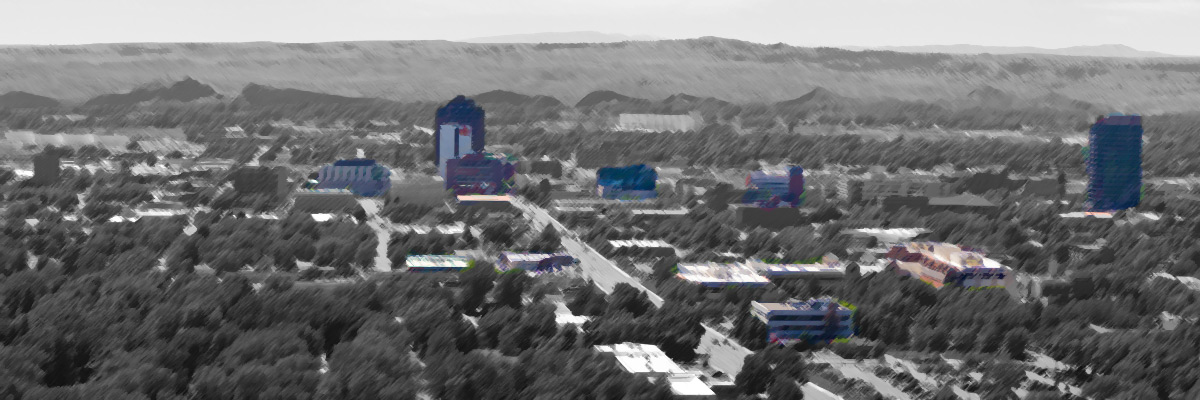Billings hovers around fifth in a lot of online conversations statewide about growth and excitement, behind Kalispell, Missoula, Bozeman, and Sidney (despite the truth). If you’re counting on your hands, that means Billings gets, at best, a pinky finger. That’s not much for the state’s biggest city. Ironically, other Montana townships might just be salivating at the economic opportunities Billings invites. At the same time, Billings now commandeers a unique problem: critical marketing mass.
The Bakken oil hustle and bustle echoes from the chaos that floods North Dakota’s plains all the way to the Beartooths. “Location, location, location” is yet to be determined in many new areas where even city planners are baffled at the growth expectations and how to accommodate for them. In all three phases of the land game (residential, commercial, and industrial), Billings stands relentlessly optimistic. Main Street casts its omniscient shadow over the Heights as the most heavily trafficked road in all of Montana, vexing business owners who open new shops one day, only to close them the next out of sheer confusion (if you don’t understand the community’s traffic flow, you don’t understand the power of Main Street). The strength of a savvy local marketing effort can be leveraged ten-fold stronger than the slick ads out-of-town marketers employ.
“If you’re counting on your hands, that means Billings gets, at best, a pinky finger.”
No one tweets, at least for the masses in a way people consistently follow. Downtown surges and suffocates, in a continual cycle of new and old, like a confusing game of Sim City with retailers that think “if you build it, people will come.” They all do…the first six months, and then those retailers are often left to fend for themselves with little depth of marketing knowledge against the next “new guy.” Billings is consistently two years behind national retail and technology trends. Lest you think that’s desirable, consider that other small cities more adept at technological advancement and cultural change will snatch up available dollars (in both government and private sectors) that the Magic City will miss out on. Small start-up businesses who know how small Billings is in their heart of hearts know spending money on marketing is a daunting task, because it’s really a question of spending money on the right marketing for the right return. Someone has to put all this together to make sense.
“At the same time, Billings now commandeers a unique problem: critical marketing mass.”
Case in point: A Billings organization hires an out of state firm to sell ads in a local publication. They may have thought this was wise to save a penny, but more likely it’s tragic. Advertisers from another state call and ask local businesses for money for their ads when they don’t even have a “406” area code or have any concept where this publication will be for distribution points. What effectiveness is lost in the name of saving money?
To out-of-town marketers, Billings is a glitch. How can this place, surrounded by refineries, be refined? How can Billings, out of tune with technology, be more in tune with people than big cities? We’re from a small town, but we’re not stupid. Somewhere in the big blue sky, Billings dreams the dream of building Montana’s version of the best city on earth. People in Bozeman and Missoula scoff at the notion. In the time it took to write this article, Bozeman’s small acreage housing market probably artificially inflated another 5% while simultaneously dropping 12 degrees in temperature. Sure, a river still runs through it, but 16 more residents of Missoula likely just bought SAD lights for the other 265 days of their year without sunshine. The refineries here are just a façade that keeps people from knowing the wonder of opportunity that is this city. That, however, means our jobs as marketers are unique in this bubble.
In a lot of ways, we like the bubble. It protects us from expediting any change that forces us to be impersonal or lose our historical roots. In other ways though, it’s time to matriculate. If, as marketers in our own hometown, we can find a balance between the growth engines of the economy we possess and the preservation of our relational, honest, and raw culture, then maybe we can pop the bubble that’s holding us back from healthy growth while maintaining our identity as Montanans. We as local marketers are the only ones whose agenda is safe enough to edify Montana while we advertise to it. If we do our jobs right, intelligently educating ourselves and showing why we’re more valuable, bursting that bubble might be so close that all it takes is…say…a little pinky finger.
~ Jon Switzer – Account Executive, Ultra Graphics
